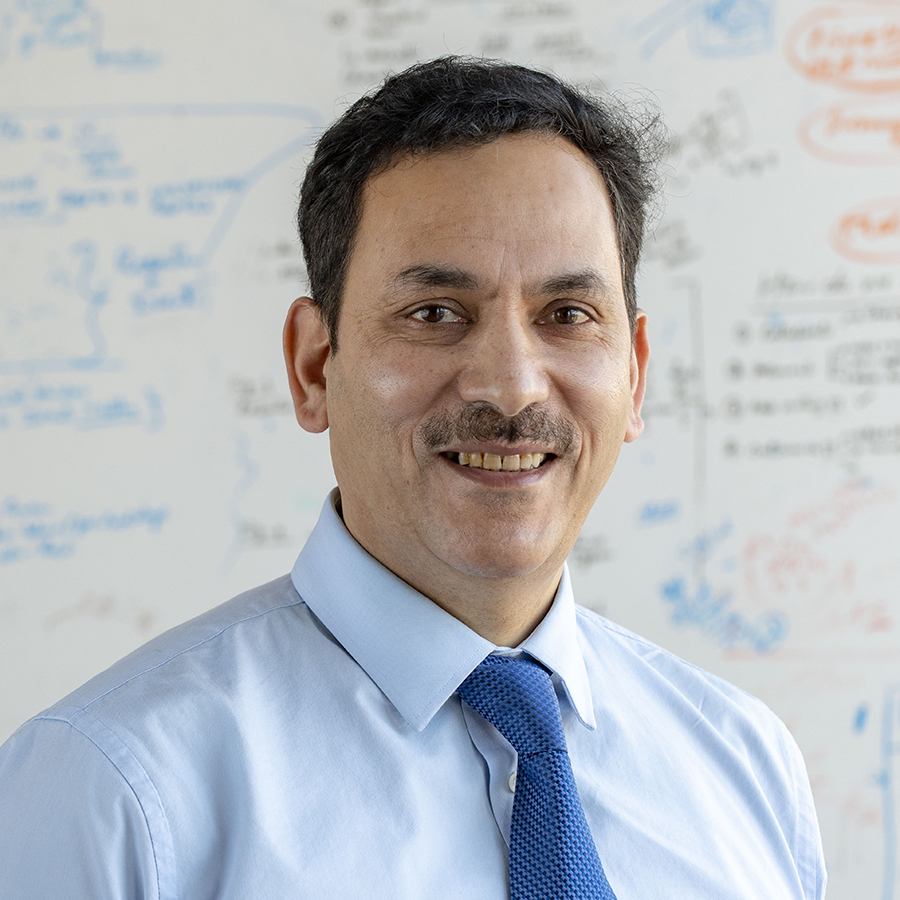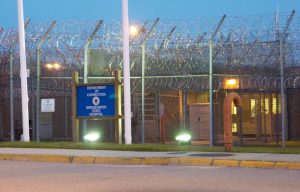
Harvard neuroscientist accused of research misconduct, plagiarizing images: ‘What I found was a huge surprise’
The research misconduct allegations keep coming at Harvard, as a leading neuroscientist is now under the microscope for possibly falsifying data and plagiarizing images in his groundbreaking research about aggressive brain tumors and stem cells.
Khalid Shah, a Harvard Medical School professor who’s the vice chair for research at the Department of Neurosurgery at Brigham and Women’s Hospital, is facing heat that dozens of his research papers allegedly include images taken from other researchers’ papers and vendor websites.
These accusations for the Harvard Med professor come after Dana-Farber Cancer Institute said it was moving to retract six studies and correct 31 others as scientists face “data forgery” allegations for their cancer research. Also, Harvard’s former president, Claudine Gay, recently resigned amid plagiarism allegations.
The claims about Shah have come to light because of science integrity consultant Elisabeth Bik. The sleuth has been closely examining Shah’s research papers after she got a tip from an ex-lab worker about “sloppiness … in the lab,” Bik told the Herald on Thursday.
“There was a general feeling of unease from this person,” Bik said about the tipster. “They said people in the lab felt encouraged to give the principal investigator particular results.”
Bik took a close look at dozens of Shah’s research papers. In particular, she analyzed a 2022 paper that is apparently one of the most egregious examples of copying images that she has seen.
“The papers have the usual image problems we, unfortunately, encounter so many times, such as duplicated photos of mice and overlapping Western blots,” Bik posted on her blog on Thursday.
“But this set also includes a 2022 paper that appears to have copy/pasted several figure panels from other researchers and even scientific vendors,” the scientist added.
The paper that she zeroed in on was titled, “Target receptor identification and subsequent treatment of resected brain tumors with encapsulated and engineered allogeneic stem cells.”
In the study, the researchers claimed that they devised a novel therapeutic strategy for treating glioblastomas post-surgery by using stem cells taken from healthy donors that were engineered to attack glioblastoma-specific tumor cells. The scientists reported that 100% of mice lived more than 90 days after treatment.
“I did my usual ImageTwin scan to see if any of the figure panels were duplicated or overlapping,” Bik said in her post on Thursday. “What I found was a huge surprise.”
“Several of the images showing mouse tissues matched those of older papers from completely different groups,” the sleuth said, later adding, “It was totally unexpected to find images from a Harvard lab to match images published by a different set of authors working in a different lab.”
Overall, at least 12 panels in this paper appear to have been copied from unrelated papers, one panel from one of their own older papers, and three panels from scientific vendors.
Bik also found 27 additional papers with image problems, such as duplicated and overlapping photos, or photos reused from papers by the same authors.
Last year, the Herald spoke to Shah about creating a vaccine to kill and prevent glioblastoma. Shah did not immediately respond to a request for comment on Thursday.
Related Articles
Annette Bening named Harvard’s Hasty Pudding Woman of the Year
Harvard Palestinian and Muslim students file federal civil rights complaint: ‘Unprecedented levels of racism’
14 Massachusetts colleges land on restrictive free speech list: ‘Censorship and terrible policies’
Dana-Farber Cancer Institute to retract 6 studies, correct 31 after ‘data forgery’ allegations
Silverglate: Harvard policies in need of an overhaul
Harvard Medical School in a statement said, “Harvard Medical School believes that the critical review of scientific work by peer scientists — both before and after publication — is an integral part of the scientific process, which is designed to identify and correct errors and enhance the rigorous interpretation of data so that scientific discoveries can be built upon and augmented, and so that existing knowledge can be expanded.”
“Please note that until proven otherwise, any and all concerns remain simply concerns, and it is critical for the review process to unfold as intended,” HMS added. “The mere identification of irregularities is, in and of itself, not indicative of deliberate misconduct because errors can occur for a range of reasons. The cause and nature of any alleged errors or irregularities can only be assessed through rigorous, detailed, and careful review.”
Paul Anderson, chief academic officer of Mass General Brigham, said, “Mass General Brigham is committed to preserving the highest standards of biomedical research and fostering scientific innovation. We take very seriously any questions, concerns, or allegations regarding research conducted at our hospitals and undertake a robust and confidential process to assess and respond to any claims that are brought to our attention in accordance with hospital policy and federal regulations.
“We have also engaged in several new research integrity initiatives over the past few years, including enhancing education and training, instituting a research code of conduct, and utilizing new tools and technology,” Anderson added. “With thousands of papers published by our researchers each year and as the largest hospital system-based research enterprise in the nation, we always welcome any additional information that can aid in our review to ensure that all research conducted is done under the most rigorous scientific standards.”
Mass General Brigham (Herald file photo)


